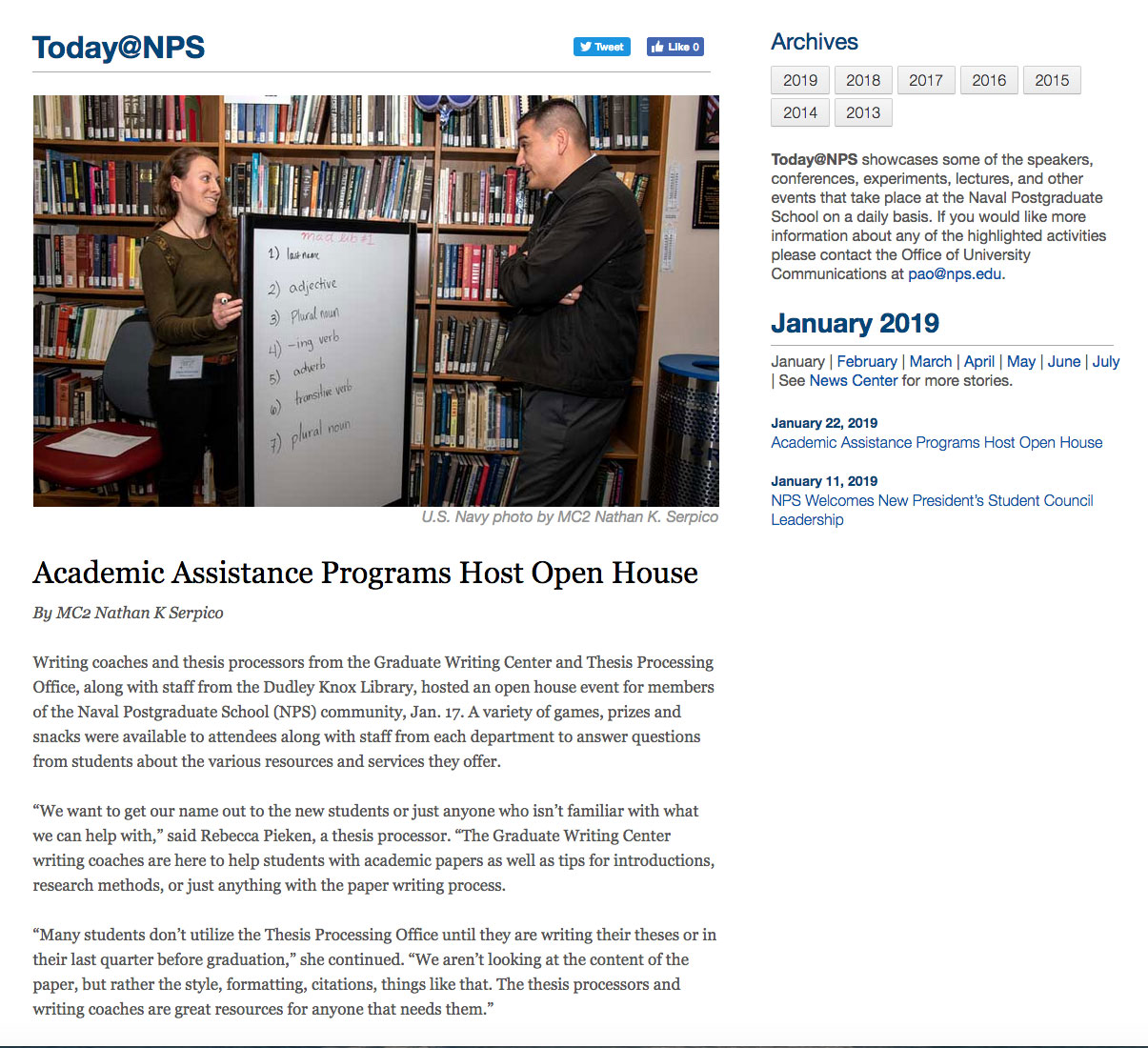The Naval Postgraduate School (NPS) recently welcomed an international cohort of defense leaders to its Defense Resources Management Institute (DRMI) for the 45th iteration of its flagship program, the Senior International Defense Management Course (SIDMC).
The international cohort included 35 senior civilian and military leaders from some from 25 allied and partnered nations. NPS Professor Natalie J. Webb serves as DRMI’s Executive Director.
“SIDMC is a class that helps people to think about connections from strategic planning all the way through to the budgeting process,” said Webb. “We develop a cadre of people who can talk about resources using a common vocabulary that allows them to explore mutually beneficial concepts and practices.”
Director, Operational Planning U.S. Air Force Brig. Gen. Tim Fay traveled from the Pentagon to attend the course. He and his classmates applied DRMI-developed resources management tools to their roles as ministers of a fictional nation during the four-week course.
“The course offered [among other things] a practical application of risk management decision making in an uncertain security and challenging fiscal environment.
“The international perspectives and the wide range of experiences that the participants bring to the class really allow us to learn from each other, and ensures our ability to make good decisions,” said Fay.
While a common theme amongst SIDMC graduates is the value of sharing lessons-learned and networking with fellow international leaders, Fay acknowledges the role that the DRMI faculty play as both instructors and facilitators throughout the course.
“The faculty that they have here are extremely effective and impressive. They balance the most cutting-edge modeling with practical knowledge. The curriculum reflects the faculty’s balance between theory, practice and application … It’s frankly incredible,” said Fay.
Director of Policy and Plans, Mr. Faruk Geci with Kosovo’s Ministry for Kosovo Security Forces (MKSF) is attending a DRMI course for the second time. He first attended the International Defense Management Course.
“This is a great opportunity for me and my country. I will take all of this back to Kosovo. It will help us to conduct strategic planning in a resource scarce environment,” said Geci.
Like Fay, Geci noted that the course’s international approach was particularly enlightening.
“It is unique in that it gathers senior people from all around the word and gives them the opportunity to collaborate at the strategic level.
“We are a new country and we are looking to develop our defense forces and the Ministry of Defense … this really helps that. It’s huge, [and] it will help me to make decisions on a daily basis that will benefit my country. I have attended many courses in Europe, but this course is unique, there is nothing quite like it,” said Geci.
In the future, Geci hopes to bring the SIDMC to his native Kosovo.
“I am looking forward to bringing a mobile team from here to Kosovo to address our senior leadership, this is a critical time for us, and a mobile team will really help,” said Geci.
Rebecca Ingmarsdotter is the civilian head of the Swedish Armed Forces Defense Staff’s PRIO Department, a department that is integrating a system of financial and resource management tools. She was uncertain of what to expect at NPS.
“Sweden has been attending since the 1960s, 90 percent of our flag officers and at least two supreme commanders have attended the course, but I didn't know what to expect. I was positively surprised,” said Ingmarsdotter. “I am very impressed, it really gives us the best of both worlds, Ph.D.s coupled with defense leaders … You are given general tools that are narrowed to a defense focus and are then able to apply them through discussions with leaders from the U.S. and other countries.
“It is rare that you get to do something like this with senior leaders for four weeks, you usually only get 30 minutes with people at this level,” added Ingmarsdotter.
Ingmarsdotter notes that she found the course’s risk and resource management tools particularly effective. But like Geci, she finds value in the meeting of minds and exchange of ideas that DRMI facilitates. Webb agrees.
“We sit with people from all around the world and discuss what works, and what doesn't work. We facilitate conversations that lead to lasting friendships that persist long after the class has ended,” said Webb. “To the extent that we are all able to speak the same language about our resources, we will be able to accomplish our common goals, which makes us all stronger.”


